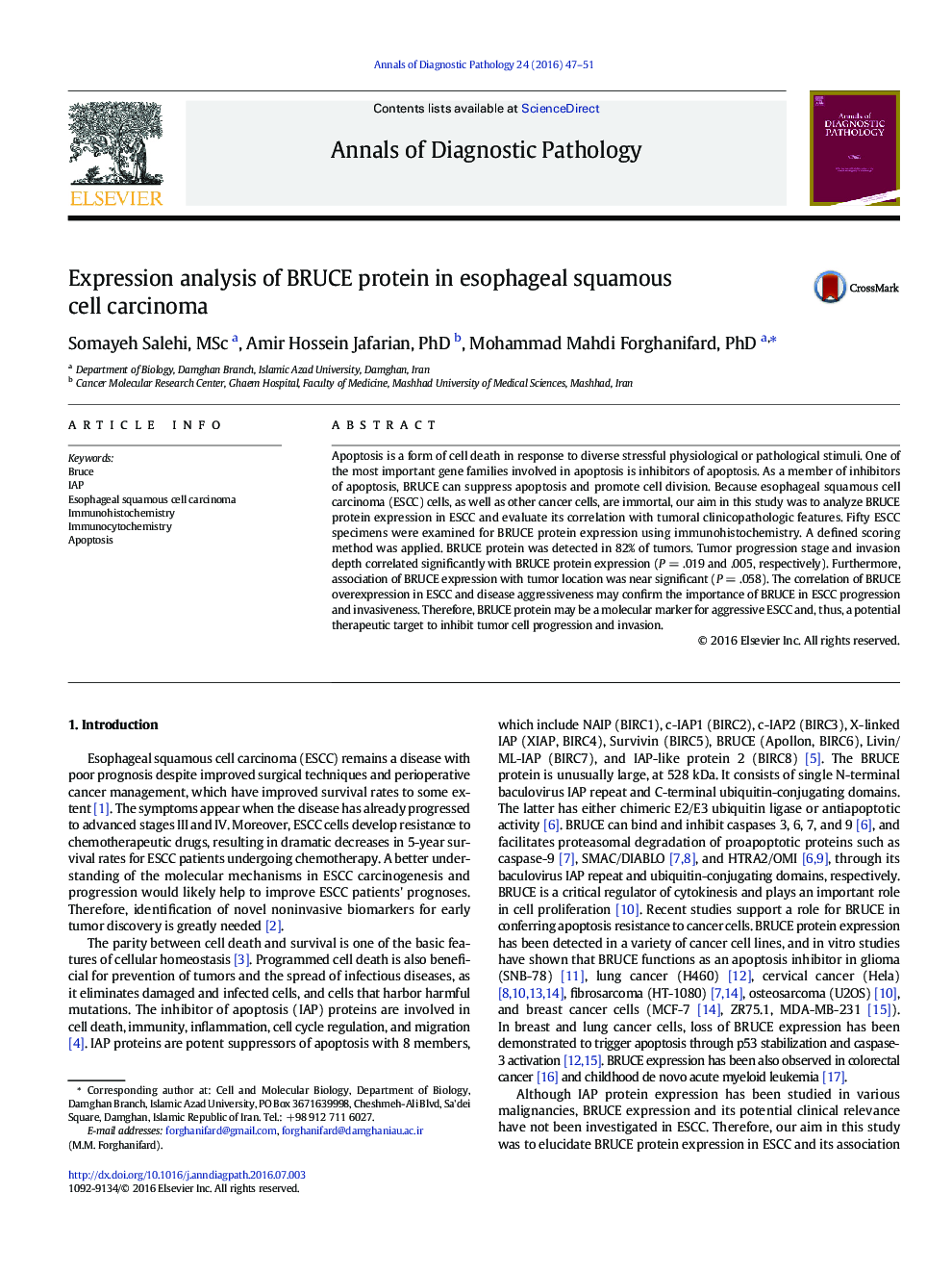| Article ID | Journal | Published Year | Pages | File Type |
|---|---|---|---|---|
| 4129687 | Annals of Diagnostic Pathology | 2016 | 5 Pages |
Apoptosis is a form of cell death in response to diverse stressful physiological or pathological stimuli. One of the most important gene families involved in apoptosis is inhibitors of apoptosis. As a member of inhibitors of apoptosis, BRUCE can suppress apoptosis and promote cell division. Because esophageal squamous cell carcinoma (ESCC) cells, as well as other cancer cells, are immortal, our aim in this study was to analyze BRUCE protein expression in ESCC and evaluate its correlation with tumoral clinicopathologic features. Fifty ESCC specimens were examined for BRUCE protein expression using immunohistochemistry. A defined scoring method was applied. BRUCE protein was detected in 82% of tumors. Tumor progression stage and invasion depth correlated significantly with BRUCE protein expression (P = .019 and .005, respectively). Furthermore, association of BRUCE expression with tumor location was near significant (P = .058). The correlation of BRUCE overexpression in ESCC and disease aggressiveness may confirm the importance of BRUCE in ESCC progression and invasiveness. Therefore, BRUCE protein may be a molecular marker for aggressive ESCC and, thus, a potential therapeutic target to inhibit tumor cell progression and invasion.
